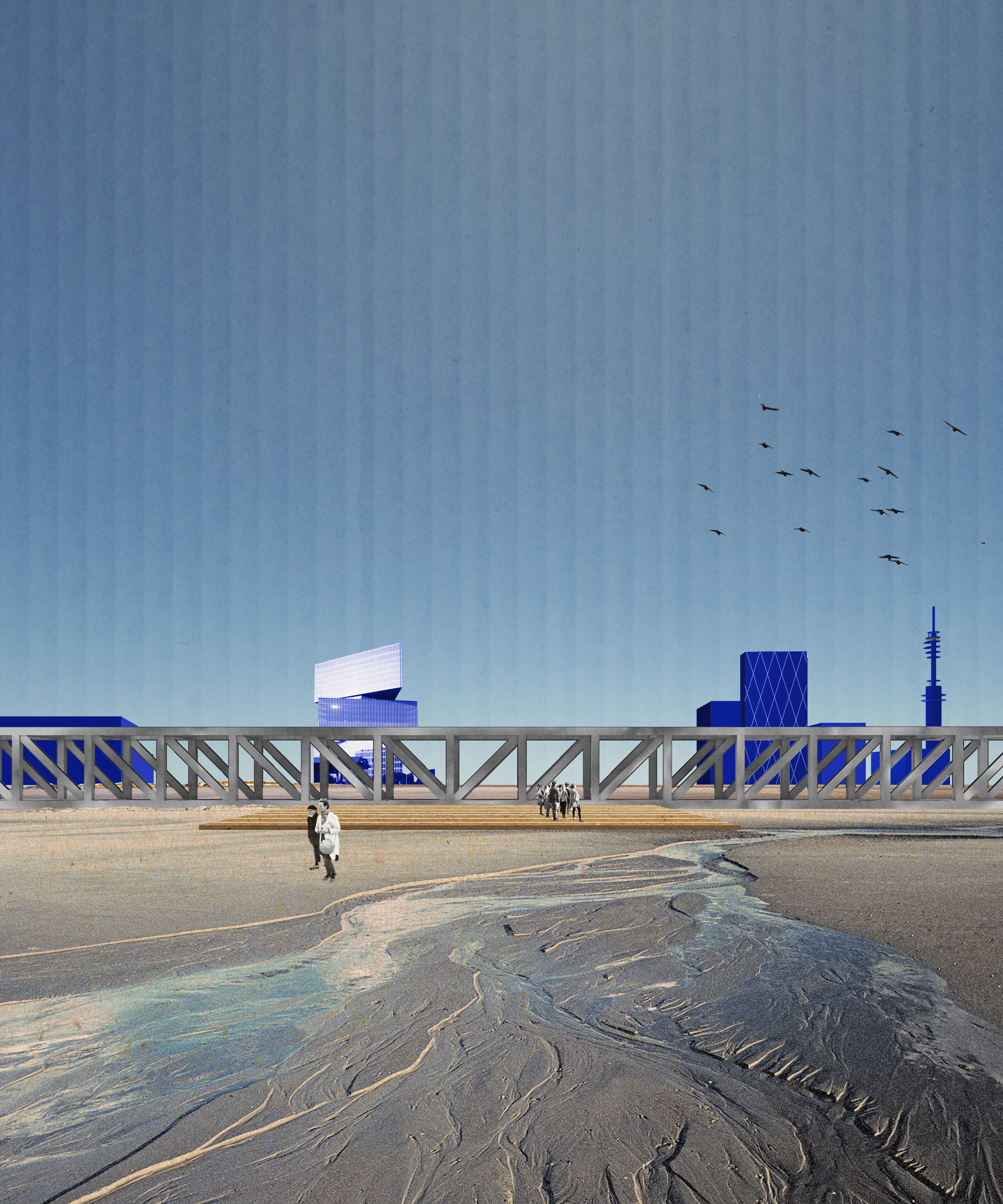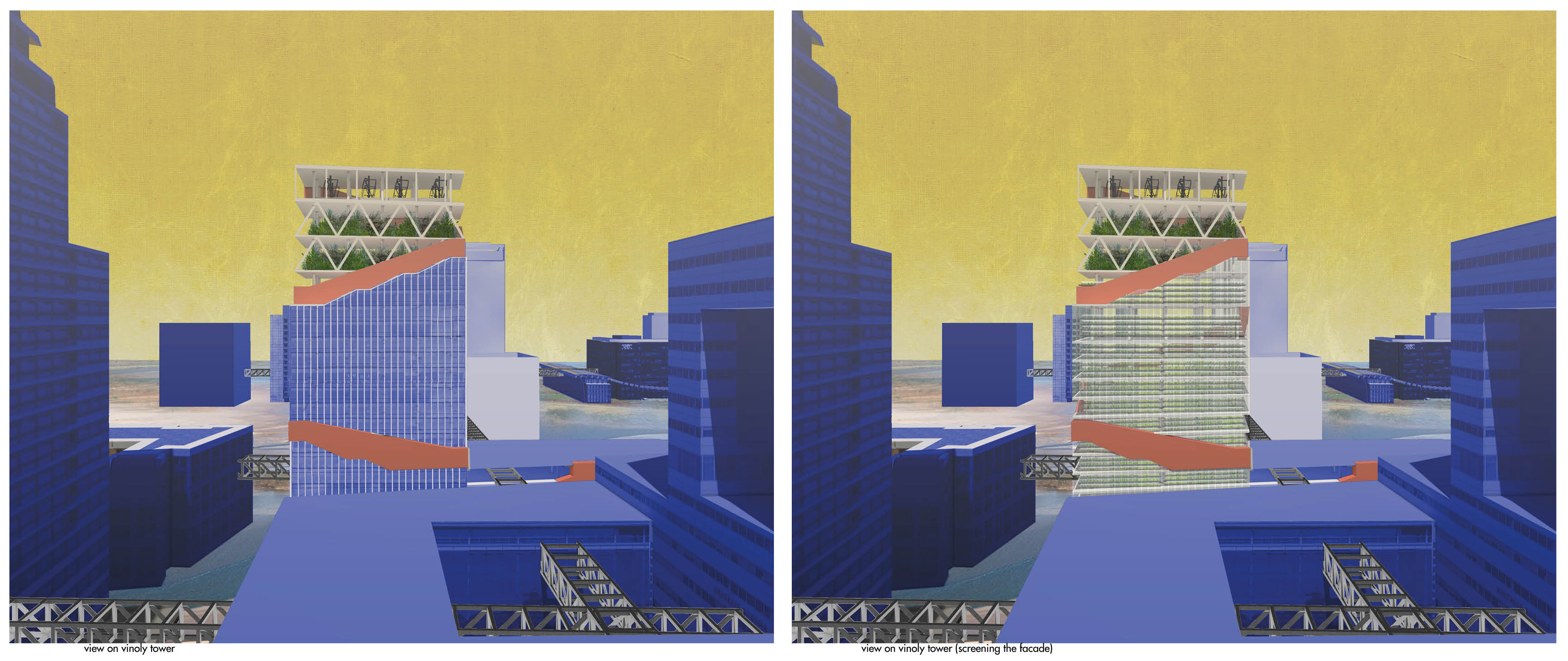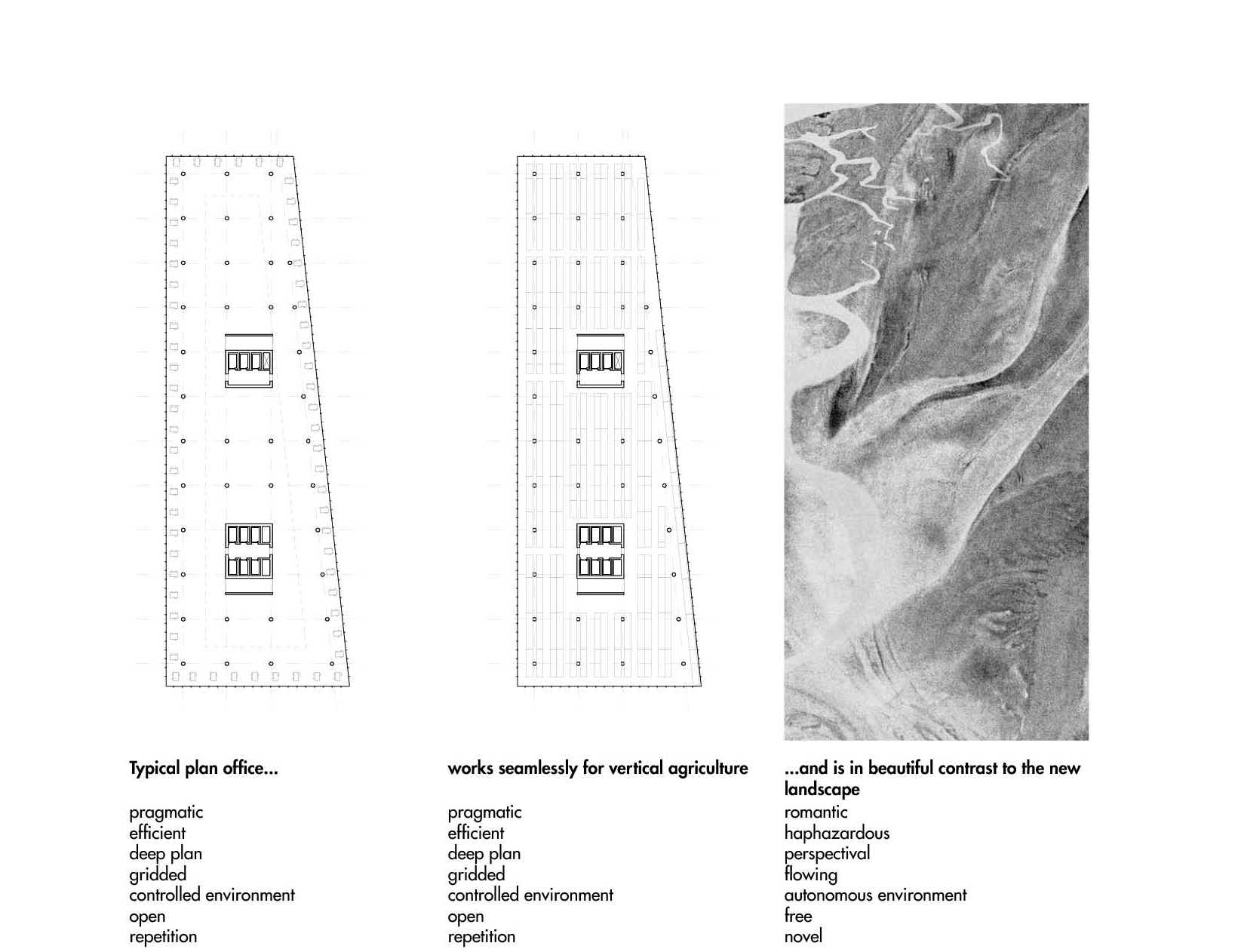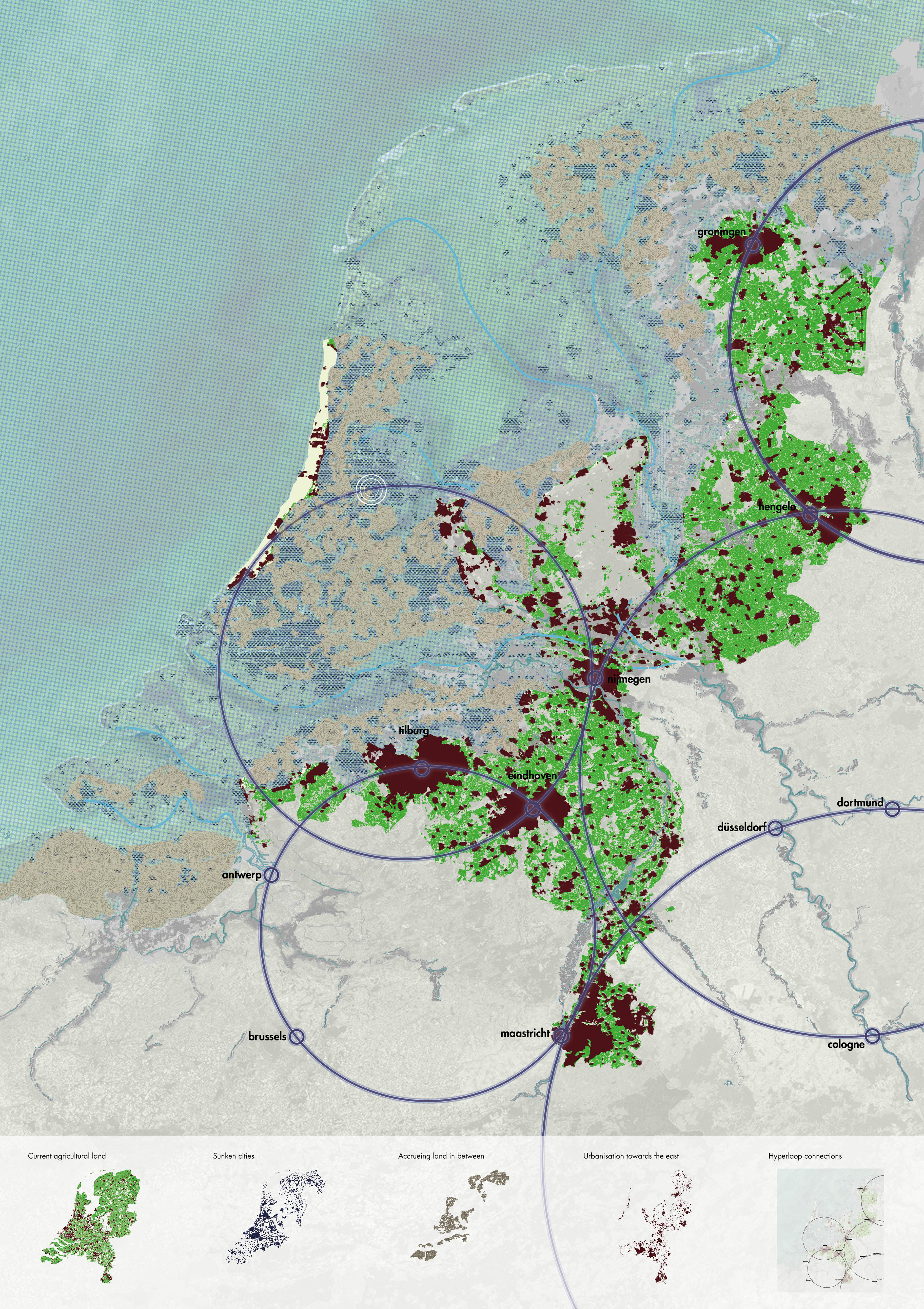ZUIDAS REPURPOSED
“For an extremely hungry man, utopia can be described as a place where there is plenty of food.” - A.H. Maslow
Rising sea levels are threatening communities worldwide. But in the Netherlands we deem ourselves to be untouchable by this. We, the Dutch people, have risen from the sea. We know how to defend ourselves. But with the ongoing climate change and sea level rise that comes with it, the intensity of rising water is unprecedented. In these times even we have to start thinking about the question of the rising sea. Luckily our research in rising sea levels can still be captured in ‘what if’ scenarios.
What if the sea level rises six meter, we stop protecting our coast and let the water come in.
The whole West and Northwest of the Netherlands will be submerged. Half of our most critical land will be lost. Our agricultural land that has sustained us for ages and from which we have been able to grow as a trading economy will become worthless. It will create one of the most basic challenges; feeding the population with half the land of before. Half the surface area of the country on which the whole population has to live, work, recreate, move and to produce food. Immense pressure on a tiny sliver of land.
By repurposing the submerged built tissue in the ‘sunken’ land, the pressure is relieved from the remaining higher grounds. The agricultural land is lost in the West part of the Netherlands, but the buildings stick out above the sea. Only the first two floors will be lost to the water, all the other floors can still be used.
A place in which a lot of floorspace is concentrated that will pierce out of the water is at the Zuidas in Amsterdam. Floorspace here is currently mainly office space. The typical plan for offices has ideal characteristics for vertical agriculture. They are open, flexible, efficient and deep; characteristics that lends the floorspace for repurposing into vertical agriculture. This proposal envisions how the repurposing of both the built tissue will look like, but also how the new conditions in the landscape and public space will change the Zuidas. A change from a business district towards an unusual combination of business, agriculture and nature; the first Central Agriculture District in the world.
“For an extremely hungry man, utopia can be described as a place where there is plenty of food.” - A.H. Maslow
Rising sea levels are threatening communities worldwide. But in the Netherlands we deem ourselves to be untouchable by this. We, the Dutch people, have risen from the sea. We know how to defend ourselves. But with the ongoing climate change and sea level rise that comes with it, the intensity of rising water is unprecedented. In these times even we have to start thinking about the question of the rising sea. Luckily our research in rising sea levels can still be captured in ‘what if’ scenarios.
What if the sea level rises six meter, we stop protecting our coast and let the water come in.
The whole West and Northwest of the Netherlands will be submerged. Half of our most critical land will be lost. Our agricultural land that has sustained us for ages and from which we have been able to grow as a trading economy will become worthless. It will create one of the most basic challenges; feeding the population with half the land of before. Half the surface area of the country on which the whole population has to live, work, recreate, move and to produce food. Immense pressure on a tiny sliver of land.
By repurposing the submerged built tissue in the ‘sunken’ land, the pressure is relieved from the remaining higher grounds. The agricultural land is lost in the West part of the Netherlands, but the buildings stick out above the sea. Only the first two floors will be lost to the water, all the other floors can still be used.
A place in which a lot of floorspace is concentrated that will pierce out of the water is at the Zuidas in Amsterdam. Floorspace here is currently mainly office space. The typical plan for offices has ideal characteristics for vertical agriculture. They are open, flexible, efficient and deep; characteristics that lends the floorspace for repurposing into vertical agriculture. This proposal envisions how the repurposing of both the built tissue will look like, but also how the new conditions in the landscape and public space will change the Zuidas. A change from a business district towards an unusual combination of business, agriculture and nature; the first Central Agriculture District in the world.




